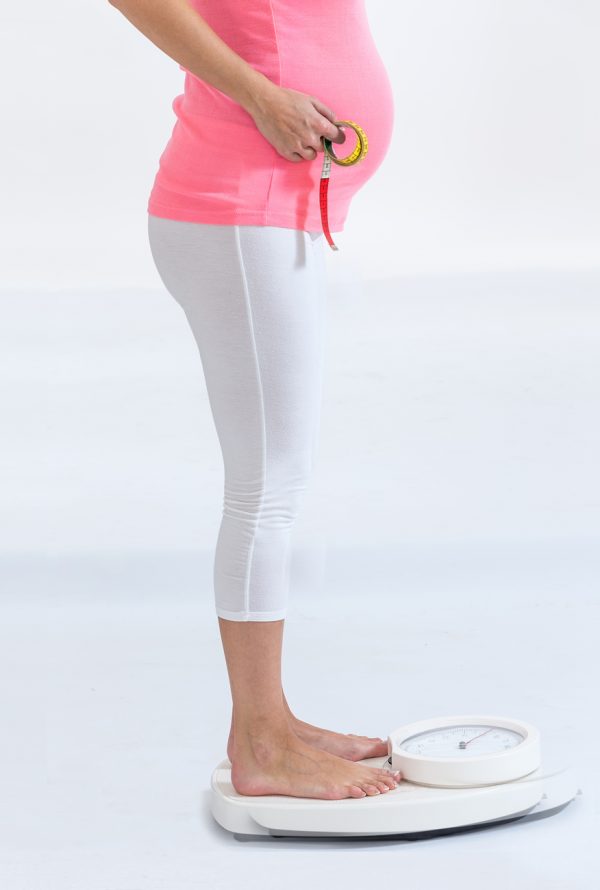
Eating for Two during Pregnancy – Fact or Fiction?
3 Jul 2017
Which Folic Acid to take for a Healthy Pregnancy?
8 Aug 2017
The Institute of Medicine recommends specific weight gain based on the BMI of a woman before she is pregnant.
Many of my patients who are successful with my fertility programme ask me how much weight they can expect to gain during their pregnancy.
This is a very important question that needs to be addressed for many reasons, not just aesthetics.
Being under or overweight can not only affect your pregnancy and birthing outcome, but also your chances of getting pregnant naturally as well as with IVF.
The Institute of Medicine found that 40% of women are going into pregnancy at an unhealthy weight, and ¾ of these women are either gaining too much or too little weight.
The first and most important step to providing your future baby with a healthy immune system starts BEFORE conception!
Both parents should start improving their health and weight status at least 6-9 months prior to conceiving.
This period improves the chances of healthy egg and sperm development as well as improving the mother’s microbiome status.
Latest research shows that babies born to overweight or obese mothers are more likely to become overweight or obese than those born to normal-weight mothers.
And a Swedish study warns that a BMI in the overweight and obese reference range is associated with a higher risk of having babies with serious birth defects.
The sensitive period of foetal organ development is the first 8 weeks of pregnancy and it is particularly during this time that BMI may have a negative impact.
Researchers have also discovered that a link between the presence of microbiota in the infant gut appears to be reflected in maternal and child overweight status, particularly in cesarean-delivered babies.
In my previous blog ‘Eating for Two during Pregnancy – Fact or Fiction’, I discussed the importance of a healthy weight before conception to improve your chances of a healthy pregnancy.
The issue is that many women think they can eat for two as soon as they get pregnant.
They end up gaining excess fat in the first and second trimester which is not needed for normal healthy development of their baby.
Excess kilos can lead to complications for mum and bub.
Putting on excess kilos preconception or at the start of pregnancy can increase your risk of complications during your pregnancy and labour, and make you more likely to have:
- A big baby (macrosomia)
- Caesarean
- Gestational diabetes
- High blood pressure
Having said this, it’s just as important to know that complications can also arise in women who are underweight, or who lose weight during their pregnancy.
These mums might end up with babies that are too small or need to be delivered early because they are malnourished.
The Institute of Medicine set up guidelines in 2009 that recommend a specific weight gain depending on the body mass index (BMI) of the woman before she is pregnant.
Your BMI is the measurement of your weight in relation to your height.
Average weight gain pregnancy guidelines
| Pre-pregnancy BMI | BMI | Total weight gain | Weight gain 2nd & 3rd trimester (average range/week) |
| Underweight | Less than 18.5 | 13kg – 18kg | 0.5kg – 0.6kg |
| Normal weight | 18.5 – 24.9 | 11.5kg – 16kg | 0.4kg – 0.5kg |
| Overweight | 25 – 29.9 | 7kg – 11.5kg | 0.2kg – 0.3kg |
| Obese | 30 or more | 5kg – 9kg | 0.2kg – 0.3kg |
On average, most women put on between 10kg – 12.5kg during their pregnancy – most of which will occur after 20 weeks.
Where do those ‘healthy’ pregnancy kilos come from?
When you reach your due date, just over a third of your weight gained will have come from your baby, the placenta and amniotic fluid.
The other two-thirds of your weight gained is due to the changes that occur to your body during pregnancy – the growth of your uterus, your blood volume increases, extra fluid in your body, your breasts enlargement and some fat you store to give you energy for breastfeeding.
Your preconception weight impacts on your pregnancy.
With all this in mind, I hope I’ve made clear the importance of your preconception weight and how it impacts on your pregnancy.
A healthy, nutritional diet with moderate exercise from before conception, all the way through your pregnancy, will help to optimise a healthier outcome.
I hare these facts with you to help you feel in control of whichever stage you may be in your fertility journey.
As a fertility naturopath my aim is that all my patients go into their pregnancy prepared, and with enough knowledge to make healthy, wise decisions for their bodies, their pregnancies and their growing babies.
Joanne Lipinski – Fertility Naturopath Melbourne
